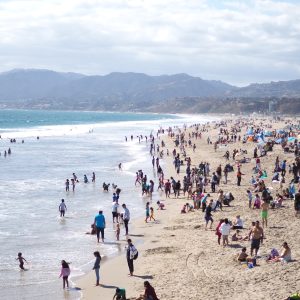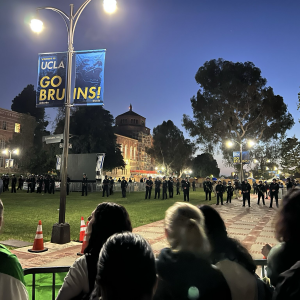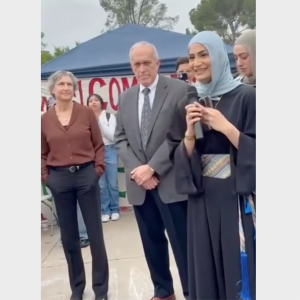 View Winners →
View Winners → City and Public at Odds Over Intentions of Anti-Camping/Panhandling Ordinance


The city maintains that the new ordinance is narrowly-tailored to prohibit “camping” in public spaces and aggressive panhandling, but the public remains convinced that it is merely a tool to criminalize the homeless. Mark, who has been homeless for years said the police don’t hassle him on Lake Avenue and maintains the majority of aggressive panhandlers are in Old Pasadena. – Photo by Terry Miller
Ordinance allows seizure of private property
By Gus Herrera
The Pasadena City Council recently approved an ordinance which amends the municipal code in order to address “homeless camping” in public spaces and aggressive panhandling. The ordinance prohibits any “tent, lodge, structure, temporary or makeshift shelter, or unattended installation or display in any park” or public right-of-way.
Furthermore, the city will be able to confiscate any unattended property left within the aforementioned public spaces. Under the ordinance, a notice will be left explaining where to retrieve confiscated items and the property will be held for a minimum of 30 days, the length of which has provoked public outcry, especially from local attorneys Will Watts and Dale Gronemeier.

John has been homeless for approximately eight years and says people are pretty kind but usually donate only a dollar or two on the 210 freeway off-ramp at Lake. He says he’s aware of the new law but is not aggressively panhandling. – Photo by Terry Miller
Both warned council of the ordinance’s potential to violate constitutional amendments – Watts specifically cited the subsection which allows for the seizure of property as violating the Fourth Amendment and the ordinance’s notice procedures as violating the 14th Amendment’s right of due process.
Will Rivera, chief assistant city prosecutor, revealed that the City of Los Angeles maintains a 90-day period for individuals to retrieve property, but City Attorney Michel Beal Bagneris assured council that Pasadena’s ordinance does not violate any laws, “there is no legal requirement that it be held for 90 days, I can’t guarantee that someone wouldn’t sue us, but we do believe that the time frame is reasonable and it would be upheld.”
Overall, the ordinance boasts a troubled history with many community activists and leaders from local faith groups and non-profits. Seemingly everytime the issue has come before council, the chambers have been filled with speakers in opposition and signs denouncing what many feel has the potential to criminalize the city’s most vulnerable individuals.
But Mayor Terry Tornek and certain council members argue that the public has the ordinance misconstrued. “[The ordinance] deals with aggressive behavior, not [the] criminalization of homelessness, as some would suggest,” said Council Member John Kennedy.
“The attempt here is to have a targeted solution for some specific problems, not to criminalize homeless people or to be heartless about our treatment of them,” said Mayor Tornek.
According to City Attorney Bagneris, the ordinance is “designed to clarify and narrowly tailor [the] code to address” camping in public spaces and aggressive panhandling, hopefully providing the police department with additional tools to keep business owners, employees, and citizens safe from menacing and disruptive behavior.
Under the new ordinance, the following is deemed “unlawful” without the issuance of a permit or valid license agreement: standing or sitting in or upon any street, alley, sidewalk, or crosswalk in any manner hindering or obstructing free passage of persons passing by; placing personal property upon any street, alley, sidewalk, or crosswalk, in any manner, to hinder or obstruct any person from freely passing by; impeding the progress of/hindering any person from freely passing by on any street, alley, sidewalk, or crosswalk for the purpose of soliciting, asking, or begging for money; and approaching any person in any public way or place in a threatening, coercive, or menacing manner for the purpose of soliciting, asking, or begging for money.
Originally, the ordinance also included a section prohibiting camping in areas deemed “primary commercial corridors,” but council chose not to include it in fear of pushing constitutional boundaries and inciting lawsuits. Furthermore, Council Member Andy Wilson argued that until the city has enough permanent supportive housing to accommodate all those who would be in violation of the ordinance, it would be irresponsible to enforce such a law.
The ordinance was approved without opposition.


































































































